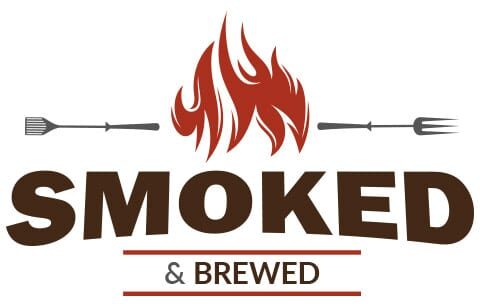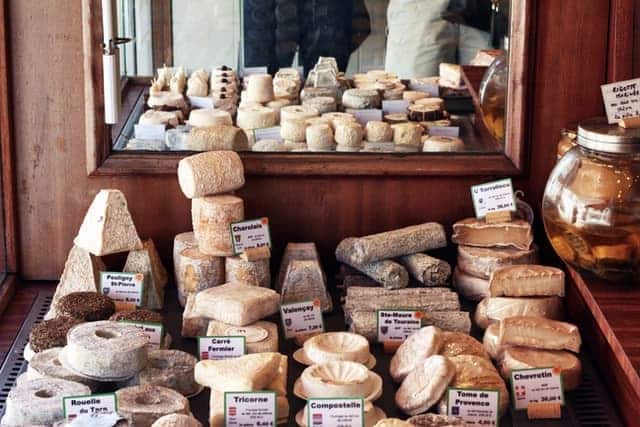If you’re pregnant or have a loved one who is expecting, you might know that one has to be very cautious of the food one consumes during the pregnancy. Food items like raw milk cheeses that are prone to molding or bacterial growth are considered life-threatening during this period. So, does that include smoked cheese?
Smoked cheese is safe to consume during pregnancy as long as it is made from pasteurized milk and stored in a clean environment without extended exposure to air. These typically include Gouda, Provolone, and cheddar. Again, make sure to confirm that the cheese isn’t made from raw milk.
In this article, you’ll learn more about safe cheese consumption during pregnancy, including the risky cheeses to avoid, the ones that are generally safe to consume, and the three steps to take to ensure safety when buying and consuming cheese while pregnant.
What Cheeses Should Be Avoided During Pregnancy?
To know which cheeses to avoid during pregnancy, you must understand the threats of consuming unsafe cheeses. Since cheese isn’t the most inert food, it carries an inherent risk of contamination. More specifically, certain cheeses are more prone to getting contaminated with E. Coli and Listeria.
You should avoid cheese made from unpasteurized milk during pregnancy, regardless of whether the cheese is smoked or unsmoked. Moreover, you should look for cheese that’s individually packed and has a low moisture content (which most smoked cheeses do).
While smoked cheese may inherently have low moisture content, it can also get contaminated if served from the same wheel in an unsanitary environment. Usually, this is a risk we take because the worst-case scenario is getting a little sick. But when you’re pregnant, E. Coli or Listeria can result in a life-threatening condition which is why you should stay away from cheese sliced and served from an open wheel.
To get more specific, the following cheeses are the most prone to being contaminated by bacteria:
- Feta, which has up to 52% moisture content
- Roquefort, which has moisture content upwards of 42%
- Panela Cheese, with moisture percentage exceeding 40%
- Queso Blanco, which has over 52% moisture
- Camembert, with up to 57% moisture content
- Queso Fresco, featuring over 50% moisture
- Brie, which typically contains over 45% moisture
All of the above cheeses can technically be smoked and still have enough moisture to foster a colony of bacteria. That said, these cheeses aren’t usually smoked as often as hard cheeses are. With hard cheeses, you don’t have to worry about E. Coli and Listeria as long as their source isn’t unpasteurized milk.
What Cheeses Are Safe During Pregnancy?
Being pregnant means, you have to be cautious regarding your diet. The risks you take with your food consumption have higher stakes when your diet also feeds the child you carry. That said, you do not have to abandon your love for cheese during your pregnancy; you just need to be more selective.
Any hard, smoked cheese is safe to consume during pregnancy provided that it has been made from pasteurized milk and has been stored and served safely in a clean environment. Cheeses that typically meet these criteria include Gouda, Cheddar, and Provolone.
But the above three don’t make up an exhaustive list of cheeses you can have. Before I list more varieties, you need to understand the role of smoking a cheese, so there’s enough context. Unlike smoked meats, smoking a cheese has more to do with taste and less with its preservation.
While the process can reduce a cheese’s moisture content, the real risk of bacterial infection starts with using unpasteurized milk. High moisture content can accelerate the reproduction of bacteria though.
Technically, one can smoke any cheese, which means you can have any of the following cheeses as long as they’re made from pasteurized milk:
- American cheese
- Colby Cheese
- Monterey Jack
- Parmesan Cheese
- Swiss Cheese
- Muenster Cheese
- Romano Cheese
The above cheeses don’t need to be smoked. You just have to make sure they’re made from pasteurized milk and that the product hasn’t been left in an open environment. Air can carry bacteria from other open cheeses in a shop.
Is Smoked Gouda Cheese Pasteurized?
When it comes to smoked cheeses, Gouda is a pregnancy favorite because it is generally considered safe due to its hardness. As mentioned above, less moisture means the cheese isn’t conducive to the reproduction of bacteria. Still, that doesn’t make any smoked gouda safe for consumption.
Smoked Gouda isn’t necessarily pasteurized as it can be made and smoked from both raw and pasteurized milk. You’ll need to check with the server or the manufacturer’s packaging/sales page to ensure that the Gouda you’re about to buy is made from pasteurized milk.
Again, it is important to understand that smoking the cheese doesn’t make it risk-free for pregnant women’s consumption. It is having its source milk pasteurized that ensures its safety, which is further maintained by keeping the cheese well-packaged throughout the supply chain and well-stored before serving. Fortunately, Gouda usually checks all these boxes.
Is Melted Cheese Safe During Pregnancy?
In the above section, I mentioned that smoking a cheese doesn’t play as big of a role in keeping it bacteria-free as most people think it does. If that’s the case, one might wonder if it is okay to have melted cheese while pregnant.
Melted cheese is safe during pregnancy if it meets two conditions: it has been made from pasteurized milk and hasn’t been left in the open for more than four hours. If either of these conditions isn’t met, the cheese can contain bacteria which can be harmful to the baby and the mother.
How to Ensure Safety When Buying Cheese for a Pregnant Person
If you’ve read this far, you now know everything you need to know regarding safe cheese consumption. Still, it can all be a little hard to remember when you’re out shopping. While you can bookmark this post and refer to it when shopping, I want to make it even more convenient with a three-step checklist.
Make Sure the Cheese Is Not Made From Raw Milk
The first step in the process is to check whether the cheese you’re about to buy is made from raw milk or pasteurized milk. If it is made from pasteurized milk, it can contain bacteria, mainly E. Coli and Listeria. That’s why you should exclude any cheeses made from raw milk. You can ask the server, check the manufacturer’s sales page if buying online, or lead the packaging for confirmation of this.
Avoid Cheese With High Moisture Content
Once you’re dealing with cheeses made from pasteurized milk, you’ve already entered the safe territory, and the only risk that remains is that of outside contamination. You don’t want air-borne bacteria or other microbes from open cheeses to contaminate the one you’re looking to buy.
That’s why it is advisable to avoid cheeses that have over 40% moisture. If you buy soft cheeses made from pasteurized milk, you may want to buy prepackaged and unopened ones, which brings us to the final step.
Opt For Prepackaged Cheeses Instead of Slices off of a Serving Wheel
If you’re buying a hard cheese, buy a small block or wheel that’s prepackaged. Getting a slice off a serving wheel that’s been open in the shop increases the risk of cross-contamination. Individually packaged cheeses are great if you’re interested in molten cheese or shredded cheeses. Blocks and small wheels of harder cheeses are available in both smoked and unsmoked forms.
Final Thoughts
Pregnant people should stay away from cheeses made from raw milk or kept in the open for extended periods. This can sound restrictive but actually opens the doors for one to have virtually any cheese as long as she makes sure to abide by the three steps of safe cheese consumption during pregnancy.
Scot has loved smoking food in his free time for the last few years. Each major holiday or off-weekend, Scot spends days testing and prepping new recipes for perfection.

